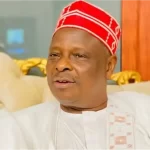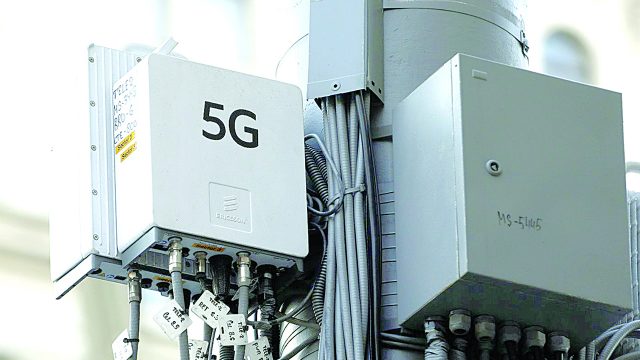By Adeyemi Adepetun
The Fifth Generation (5G) network is live in Nigeria. It is the new global wireless standard after 1G, 2G, 3G, and 4G networks. 5G enables a new network that can connect virtually everyone and everything, including machines, objects, and devices. ADEYEMI ADEPETUN, in this piece, writes on many possibilities with the technology.
With higher multi-Gbps maximum data speeds of up to 10 Gbps, ultra-low latency, increased reliability, massive network capacity, and increased availability, 5G will drive innovation across every sector, industry and transform everything, as we know it. What does this mean for Nigerians and how will it impact our lives, from the software developer based in Lagos to the grandma in the depths of Makurdi.
randma in the depths of Makurdi.
According to the World Bank, Nigeria has the highest number of out-of-school children in the world. 5G is able to accelerate the democratisation of inclusive and affordable access to quality education, thus leveling the playing field between children in remote villages and children in cities. 5G can help transform education in Nigeria, as students will be able to download learning materials faster and collaborate in real-time. Medical students are not excluded from this educational experience. They can use augmented reality (AR) to dissect cadavers and diagnose illnesses, among other things. Indeed, 5G technology will advance the educational sector in Nigeria by bringing abstracts to life and introducing a new way of seeing the world.
5G as an enabler
It is not news that Nigeria has a medical personnel shortage. With 5G, telemedicine is now at fingertips. From anywhere in the world, doctors can virtually perform live scans, video consultations, medical diagnoses, and examinations.
Interestingly, this was one of the use cases demonstrated at MTN Nigeria’s commercial launch of 5G technology, as doctors from Canada and the United Kingdom performed a medical diagnosis on a patient in Nigeria. Poor women, who are most at risk of maternal/infant health issues, will have access to proper antenatal care from a doctor anywhere in the country or the world with a single 5G device in a primary healthcare centre.
When combined with haptic technology, 5G enables a person in one location to control the movement of an object in another. This means that a doctor in Los Angeles can perform surgery in Lagos remotely.
Speaking at MTN Nigeria’s commercial launch of 5G technology on September 18th, 2022, Chief Marketing Officer (CMO) of the telecoms firm, Adia Sowho, said: “The list of possibilities with 5G is endless. We are truly excited to be at the forefront of bringing this amazing technology to Nigerians and can’t wait to share in all the incredible moments that our customers will experience. This is true because slow Internet speed is a major issue for creatives such as content creators, movie producers, and photographers, among others. However, the 5G revolution has eased this pain point because 5G’s low latency, incredible speed, and bandwidth enable instantaneous file transfer without a second’s delay.”
The CMO backed up this claim during a live speed test at the 5G launch, where a file of 2GB was placed to download on both a 4G and 5G network. The 5G network downloaded the file in less than two minutes, while the 4G network said it would take an hour.” 5G has already downloaded the file, while 4G has asked us to return in an hour,” she added.
Also, 5G is expected to alter the entertainment industry. AR/VR technology will enable more than just watching contents by making the feelings real. Users can virtually visit other countries, be in games rather than just playing them, and watch artists perform together live on stage from different locations.
Agriculture is one way for Nigeria to achieve true sustainability. We can have smart farms with 5G, where farm activities can be managed using robots, drones, and other devices to improve the quality and quantity of production and maximise results. Smart-enabled devices on smart farms process faster progress in cultivating, planting, manuring, and harvesting, while minimising labour for farmers. Farmers can monitor market prices in real time, storage facilities for moisture and other issues, and if there are any complications, farmers can be alerted via SMS.
Pandemic and remote work
COVID-19 accelerated the era of remote work. But, as we all know, it was not without its difficulties, particularly in this part of the world. 5G will enable people to collaborate in real time, rather than only on documents. Scientists from various countries will be able to work on experiments. When COVID-19 first appeared, scientists from all over the world, including Nigeria, were sequencing the genome. With the potential of 5G, all those scientists would have been able to collaborate in real time, potentially saving many lives.
Another possibility enabled by 5G is the Smart home. Realtors can design homes where every device is smart, responsive, and connected to meet the requirements of a new homeowner. Imagine arriving home to find your air conditioner, lights, and water heater already turned on. Your sound system plays relaxing music that has been pre-programmed. 5G technology allows a homeowner to be comfortable without performing any heavy lifting or home preparations. From anywhere in the world, they can tell if there has been a break-in, if their fridge has been opened, or if the lights have been turned off. This is a brand-new and exciting revolution in Nigerian real estate.
As Nigerians, familial and religious values are extremely important to us, and with the japa wave separating families, this is another area where this piece of technology can assist, as 5G literally eliminates distance. If 4G enabled us to see and communicate with people all over the world in real time, 5G allows us to feel them to a significant degree. A grandmother in the village can hold her new grandchild as soon as they are born, no matter where they are born in the world, thanks to haptic gloves.
Supporting Fintechs
THE Fintech industry would not exist without 4G; the possibilities for this sector and the financial sector are limitless. 5G will enable seamless database communication, allowing telcos’ KYC data, BVN, NIN, and other databases to be linked in a way that makes it faster, easier, and cheaper to validate identities without physical presence or technical expertise. This is necessary for obtaining formal identification, opening a bank account, and gaining access to certain government services, among other things.
Filling out forms for financial institutions, government agencies, and other organisations is difficult for most people at the bottom of the pyramid. 5G will enable seamless voice-to-text applications, allowing illiterate or semi-literate people to fill out forms by speaking to an Integrated Voice Response (IVR) system – even in their native language – and thus access critical services by themselves.
5G is believed, will help connect Nigerian consumers and businesses to themselves and the rest of the world in ways we couldn’t have imagined before.
This, according to the Chief Executive Officer, MTN Nigeria, Karl Toriola, is one of the reasons MTN Nigeria invested so much in bringing this technology to Nigeria. “5G will enable new industries, unlock value chains, and open more doors for Nigerians.” We understand the possibilities of a digitally empowered society and are honoured to play our part in delivering this game-changing technology to our great nation. “This is what our ambition is by 2025- to build leading solutions for Africa’s progress, and today’s launch spearheads the next journey for us as we stay committed to sustainable advancement for Nigeria’s progress and that of our shareholders and customers,” he said.
But there are still challenges
Despite 5G capabilities in Nigeria and globally, there are still challenges that must be tackled for maximum impact.
For instance, the affordability of 5G devices is a factor. According to an analysis by QuartzAfrica, the low purchasing power of 5G-enabled smartphone users and the high cost of data were some of the recognised issues that would threaten faster spread of 5G in Nigeria and Africa in general.
It was reported that the cheapest 5G-enabled smartphone in the continent was sold for about $300 (about N210, 000), which is very expensive for the average Nigerian.
The cost of procuring 5G spectrum was a major issue. Aside operators including MTN, Mafab and Airtel with the financial war chest, which coughed out $273.6 million each, other players may not dare it, coupled with the fact that roll-out cost also runs into millions of dollars.
Complimentary infrastructure would be another contending issue. For instance, not many hospitals in Nigeria have telemedicine facilities.
Largely, the level of poverty in Nigeria with 133 million of the populace said to live in abject poverty. People would rather focus on surviving than surfing the web, except there are concessions.
Nonetheless, as humans evolve, needs arise, and with needs come solutions. 5G technology has boundless solutions for Nigerians, and this truly promises to be an exciting time for all Nigerians as we get to experience the endless and quite breath-taking possibilities that 5G technology enables.
Source: The Guardian








